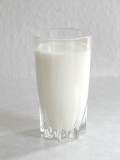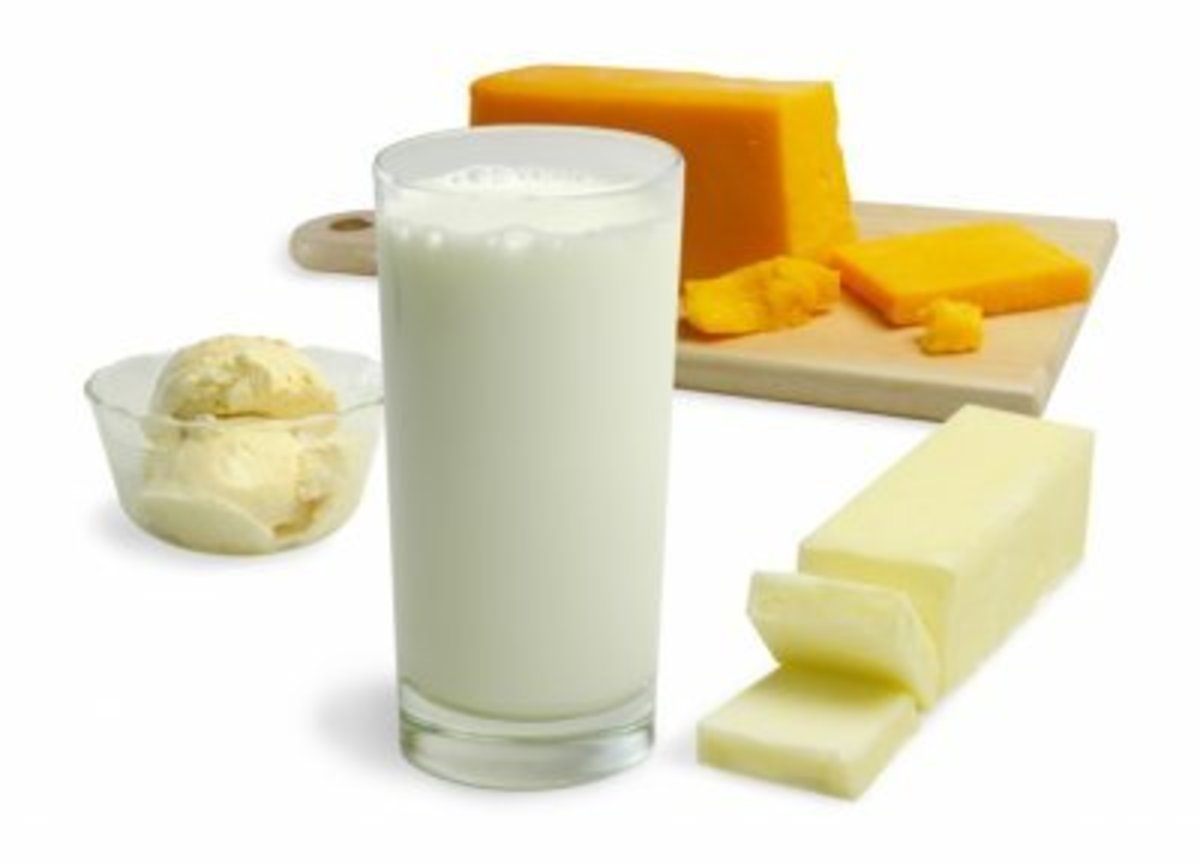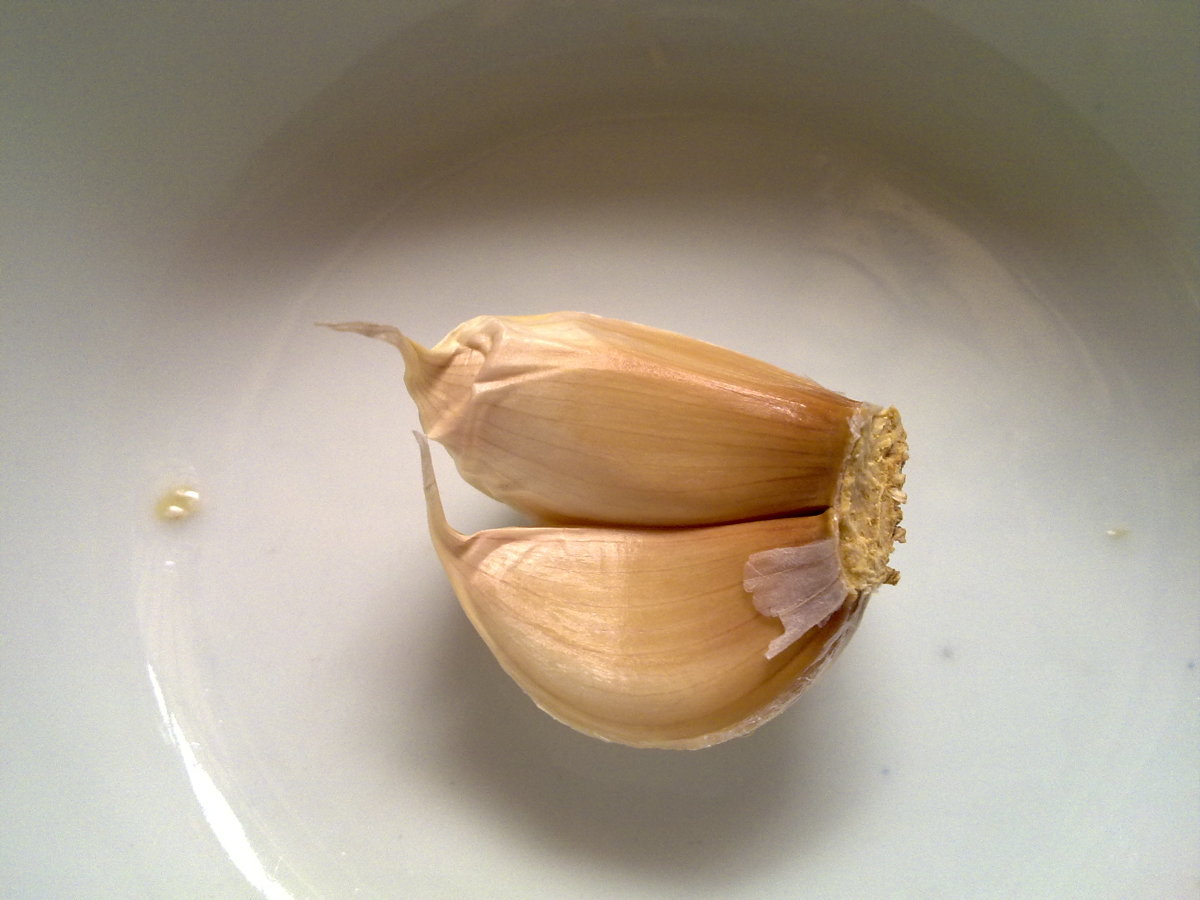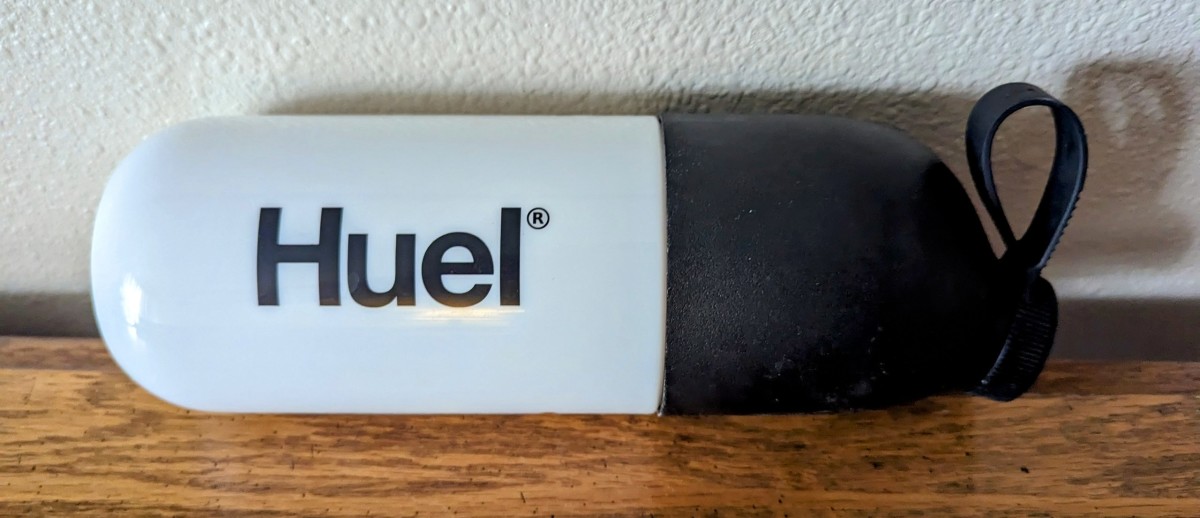No Dairy Diet - Fad or the Future?
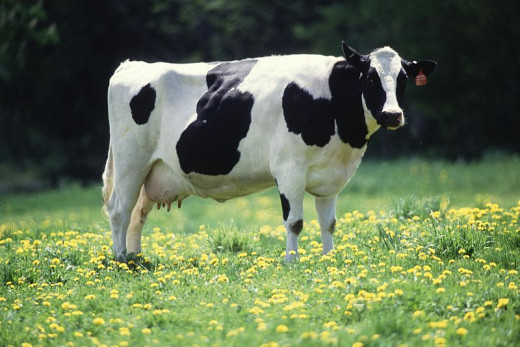
As a rule I don't buy into one research study pointing to a miracle food or a food to avoid. It seems there is always new, contradictory research coming out praising and condemning various food groups all in the same day’s work. Lately it seems new research is spanning full diet plans not merely suggestions on individual foods to eat or avoid. First carbohydrates were under attack then gluten. Now we are onto the idea of wiping dairy out of one’s diet completely. Is this just another fad or is there some real merit to this notion?
With any of these elimination diets the first question is are you allergic to the food. If yes, then of course it needs to be completely eliminated from your diet. If you are not allergic the next question is does the food cause unpleasant, but not life threatening, symptoms. If yes you need to make a pro vs. con list. What good is this food doing for me, what nutrients is it providing vs. what adverse effects is it causing. Depending on the tally from this list do you need to cut back on this food or eliminate it from your diet altogether.
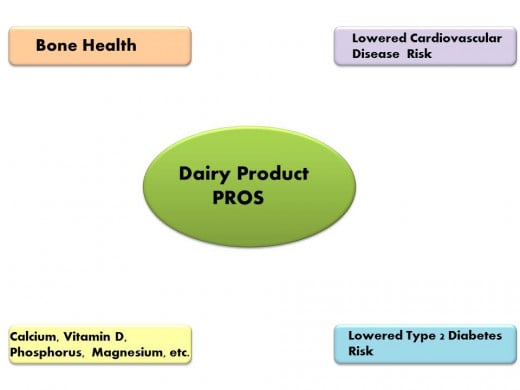
Some of the noted problems associated with over-consumption of dairy, particularly in young children, are constipation, ear infections, and anemia. As well in all age groups general sinus problems, allergies, and gastrointestinal issues can occur. There are two conditions making dairy consumption difficult or downright impossible. Many of the negative claims against dairy are in fact symptoms of these two illnesses- milk allergy and lactose intolerance. An allergy to milk is an immunology-based illness, where the immune system mounts an attack on particular milk proteins - allergy to alpha S1-casein or whey are most common- when dairy products are ingested. The immune response itself can then lead to secondary conditions such as ear infections and allergy-type symptoms like breathing difficulty and skin rash. Milk allergy is common in early childhood but most cases are overcome by the third year of the child’s life. On the other hand,Lactose intolerance is caused by a deficient production of lactase in the body which leads to difficulties in digesting dairy products. Lactase is an enzyme responsible for breaking down lactose- milk sugar- into simpler carbohydrates, galactose and glucose. People with lactose intolerance can manage their symptoms by cutting back on consuming dairy products and/or taking a enzyme replacement when eating dairy products.
One interesting point from a biological view is that we, as humans, don’t need dairy products once we are out of infancy. While newborns greatly benefit from human milk via breastfeeding once out of infancy the human body produces much less lactase. Approximately 75% of people world-wide are Lactose Intolerance. So maybe we just have it all wrong and are over-consuming dairy products in our adult lives. Even those with hypolactasia (another way of saying lactose intolerant) can tolerate about 12g of lactose. Additionally, those in the 25% are known as lactase persistence and can tolerate dairy due to one of two mutations in the gene that makes lactase allowing for an abnormal amount of the enzyme being produced after infancy. So again it looks as though the norm, from a biochemical standpoint, is we aren’t meant to eat 3 to 4 dairy serving as adults, those that can have a genetic mutation.
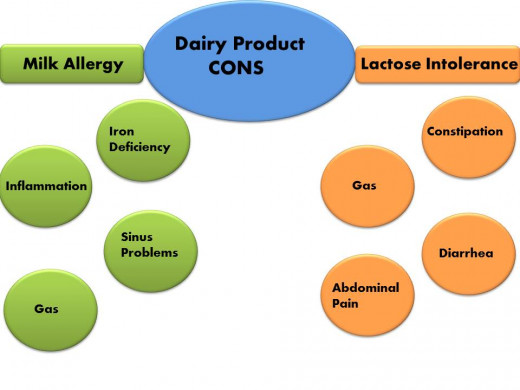
Sources on this controversial subject seem to only exist at one end of the spectrum or the other- praising or condemning dairy- including the first article I stumbled upon. Dr. Mark Hyman’s article was published in 2010 on Huffington Post’s website preaching the no dairy diet. In the article he asserts that a lot of the things we have been told about the benefits of dairy are false. The first one is the idea that dairy products help keep our bones strong. Hyman points to a Nurses’ Health Study that showed dairy products may increase one’s risk of fracture. I found the specific study Hyman references and yes the study did find a link between the two in women aged 34 to 59 followed over 12 years. This observational study was done in 1997, after a quick search on Pubmed, the National Institute of Health’s biomedical resource search engine, it returned more recent studies looking into dairy consumption in at-risk women, some of these studies were even controlled trials. These studies showed the higher intake of dairy equaling less risk of fracture. Additionally a systematic review showed that 5 out of 8 observational studies conducted in 2005 showed a positive correlation between dairy consumption and fracture, while the remaining 3 studies showed no result at all- positive or negative. Hyman found one study that went against the conclusion of many of studies and opted to include that in his article.
Hyman goes on in his article to link the low rates of osteoporosis in countries that have the lowest dairy consumption, namely Africa and Asia. To me this correlation is too big of a leap to make. Linking an entire country to one particular disease then comparing it to an entirely different country on the same disease and then trying to assert the reason is the farthest thing from a controlled study I can come up with. So maybe going into this I am a little biased. I don’t buy this author's reasoning against dairy. But there is the other side of the coin.
Do you think the No Dairy Diet is here to stay?
Undiagnosed milk allergy can lead to sinus problems and ear inflammation that may give rise to infection, along with several other symptoms that are side effects to the immune response. But if one doesn’t have a milk allergy, which can be confirmed by a blood or skin test, than it doesn’t seem likely that these various conditions are being caused by the dairy. For example ear infections alone can be caused by a number of things. Another claim is the link between iron-deficiency anemia and dairy consumption; I looked into this as well and didn’t find much. On what I call non-scientific websites there were accusations of increased dairy consumption leading to gastrointestinal bleeding as well as anemia. On PubMed there were correlations made between milk allergy and internal bleeding presenting itself in vomit or feces. Again on PubMed the link between anemia and dairy was boiled down to a link between calcium ingestion and interference with iron release from cells, causing iron deficiency which in turn is the most common cause of anemia- a decrease in the amount of red blood cells. Research went on to show that this negative interaction between calcium and iron was temporary which is most likely why any long-term studies evaluating the link between the two has not turned up anemia in individuals. Lactose intolerance is associated with gastrointestinal problems- abdominal pain, gas, and diarrhea. In regards to the latter the opposite side of the spectrum, constipation, can also occur. The mechanism behind constipation is thought to be the methane, one of the side products released into the intestines when undigested lactose sits around, which may cause decreased intestinal motility. If all of these indications are just restating the symptoms of lactose intolerance and/or milk allergy than it takes away from the appeal of the no dairy diet mantra for non-inflicted individuals.
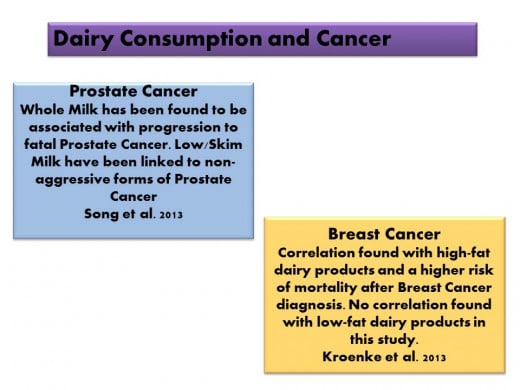
Despite the attacks on the established claims of the positives of dairy consumption, the qualifications dairy foods have relate to the nutrients found within- calcium, potassium, and vitamin D as well to a lesser extent vitamin A, vitamin B12, phosphorus, and magnesium. All of these vitamins and minerals are vital to a bodies' proper functioning with a particularly large role in bone health. In addition, a diet meeting the daily requirements of dairy will confer a reduced risk of developing cardiovascular disease and Type 2 Diabetes.
Calcium, dietary protein, and vitamin D are major players in bone health. An individual’s bone mass, which can be measured by assessing one’s bone mineral density (BMD), is on the steady increase early in a person’s life, at its peak somewhere around age 20 to 30, and from there starts to decrease. Osteoporosis is a condition in which a person has low bone mass and deterioration of the proper microenvironment in bones which can lead to fractures. There are countless sources proving the positive correlation to calcium intake to BMD which makes sense when one considers of all of the bodies’ calcium 99% of it resides in our bones (which is not to take away from the other important roles that the remaining 1% has in muscle contraction, nerve transmission, and blood clotting). Vitamin D helps maintain both calcium and phosphorus levels in the body allowing for their absorption. Dietary protein is also critical to bone health as half the volume of bone is protein, mostly type I collagen. In comparison to these three above, the minor players in bone health are potassium, magnesium, zinc, phosphorus, and sodium, along with most essential vitamins. Of note phosphorus along with calcium makes up 80 to 90% of bone mineral, and of the bodies' total phosphorus 85% of it is found in the bone.
The link between dairy intake and cardiovascular disease is a bit more complicated, in theory a diet rich in calcium should ward off cardiovascular disease due to calcium’s role in heart conduction. But currently studies have produced mixed results as to the good dairy is doing on adult risk of cardiovascular disease. It seems the use of calcium supplements instead of dairy foods is associated with an increased risk of myocardial infarction and stroke in postmenopausal women. Although this is currently a controversial subject because the cardiovascular risk is coming out of studies focused on bone health, some researchers would be more convinced if the primary endpoint was the effect on the cardiovascular system these calcium supplements have. Regardless of the study design there is cause for alarm, especially for no dairy diet followers if they opt to use supplements instead of or in addition to non-dairy calcium rich foods. The link between dairy consumption and Type 2 Diabetes (T2D) isn’t as controversial; it is clear there is a positive role of dairy consumption in reducing the risk of developing T2D although the exact mechanism is still being elucidated. Animal studies and human cell culture studies are shedding light on the role of Vitamin D in proper pancreatic beta cell function, allowing for not only the synthesis but also the secretion of insulin.
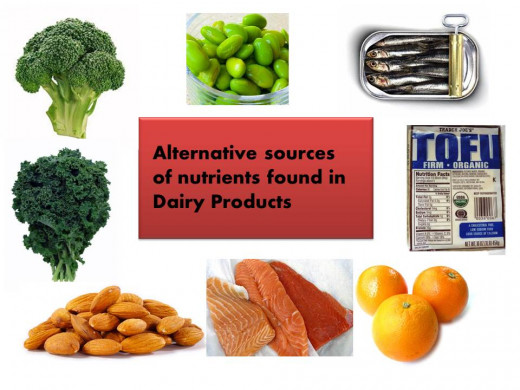
There are strong arguments on both sides of this debate, it does really seem like our adult bodies are not built to consume three servings of dairy a day, not with all the people out there suffering from lactose intolerance and milk allergy. Then again meeting one’s FDA-recommended allotment of dairy products does confer great bone health and reduces the risk of cardiovascular disease and Type 2 Diabetes. Studies have shown there is a challenge to get the proper nutrients from non-dairy foods to substitute completely for the positives dairy products can impart. Other studies point out that the optimal source of bone health components is in the mixture presented by dairy products. Additionally there is some risk currently being identified with the use of supplementation of calcium and phosphorus. But there are many out there who because of necessity due to illness or perhaps personal beliefs- veganism and/or organic lifestyle- are making the no dairy diet work for them. The logical next step would be to devise studies to look into long-term effects of the no dairy diet on individual health.
Sources available upon request.




